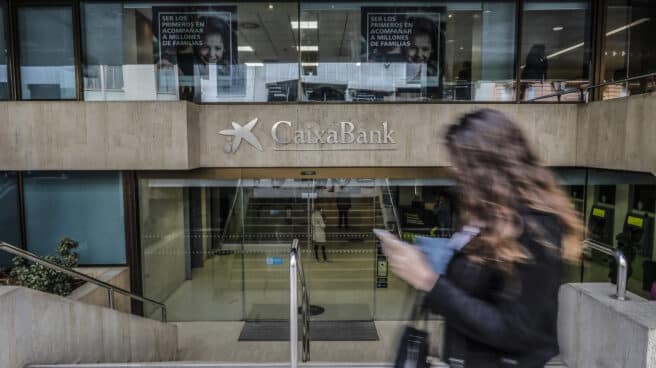

Caixabank logo.
The bank tax is ongoing and is currently awaiting Senate approval. So from January 1, 2023, it will apparently come into force. The banks were against this tax from the very beginning. The European Central Bank also expressed its disagreement with him. But the government has continued with its plan and has only undergone one modification, which is that it will also affect foreign banks that operate in Spain under the supervision of the ECB. Among Spanish organizations CaixaBank will suffer the most since until September I would have to pay 376 million euros.
The tax will be 4.8% of the interest margin and net commissions registered in the country. CaixaBank, the largest wealth management bank, registered €2,998 million in net fees and €4,843 million in interest margin through September 2022. A total of €7,841 million will be affected by the so-called non-tax property benefit of 4.8%. , that is, the company would have paid 376 million euros in the first nine months of the year.
A figure that is within the organization’s estimates. During the presentation of the results of the second quarter, Gonzalo Gortazar, CEO CaixaBank, indicated that the tax, before the text was known, would have an impact of around 400-450 million euros in the first year. The pledge will be temporary and will be valid in 2023 and 2024.
Santander Bank and BBVA These are two major Spanish banks, but they will be less affected by the tax due to their geographic diversity. The company, chaired by Ana Botin, entered 5,306 million euros in interest and net fees until September (3,134 million and 2,172 million respectively), for which it would have paid. 254 million euros for Pedro Sanchez’s tax.
Concerning BBVA, the two accounts add up to EUR 4,330 million (2,695 million interest margins and 1,635 million net commissions). So the bank would have to pay 207.84 million euros for this tax. This figure is also in line with the target of the organization, which calculated it based on the results of the second quarter, at about 250 million euros.
Sabadell Bankfor its part, introduced EUR 3,890 million in interest margin and net fees until September (EUR 2,772 million and EUR 1,118 million respectively). This means that the company would pay a tax of 186.72 million euros. Finally, bankinter It will be the business that pays the least tax as it has an interest margin of €1,062 million and net commissions of €452 million until September (total €1,512 million), meaning it will have to pay 72.6 million euros for this tax.
Despite being the least affected, Maria Dolores Dancausa, the organization’s CEO, was the most determined to sue the tax. In fact, he was the first to speak when the tax was revealed, as he presented Bankinter’s first-half results the same week. At the time, Dancausa had already indicated that it was going to explore all possible ways to appeal it, but at a financial meeting organized by KPMG and Expansión, it was blunt and assured that it was going to appeal the tax “the day after it is paid.” “
At that meeting, which was attended by representatives of all banks, the CEO of Bankinter was the most categorical, although the rest indicated that they were studying him. Victor Iglesias, CEO of Ibercaja, was somewhat more lukewarm, saying in his speech that there was a strong possibility that the tax would be challenged in court. “It is very likely that Ibercaja will appeal. then to the courts, because we believe that we are right,” the head of the enterprise emphasized.
general collection
The government wants to collect 1.5 billion euros each year during which the tax is in effect. However, this estimate was made when only Spanish banks were about to be taxed with more than 800 million euros of results. After passing through Congress, this tax will also apply to foreign banks operating in Spain under the supervision of the ECB.
Industry sources estimate that these banks will pay around 300 million euros per year. Will suffer the most BNP Paribas, ING and Deutsche Bank who has the biggest business in Spain. So 1,500 million euros a year may not have been enough, because, in addition, the ECB rate hike would also affect the tax.
Until September, five large Spanish banks would pay 1096 million euros. in the tax office. A figure that is at first within the bounds of the Executive’s estimate, since some smaller banks (Unicaja, Ibercaja…), foreigners and a quarter of the results are missing, since the tax will be annual.
Source: El Independiente